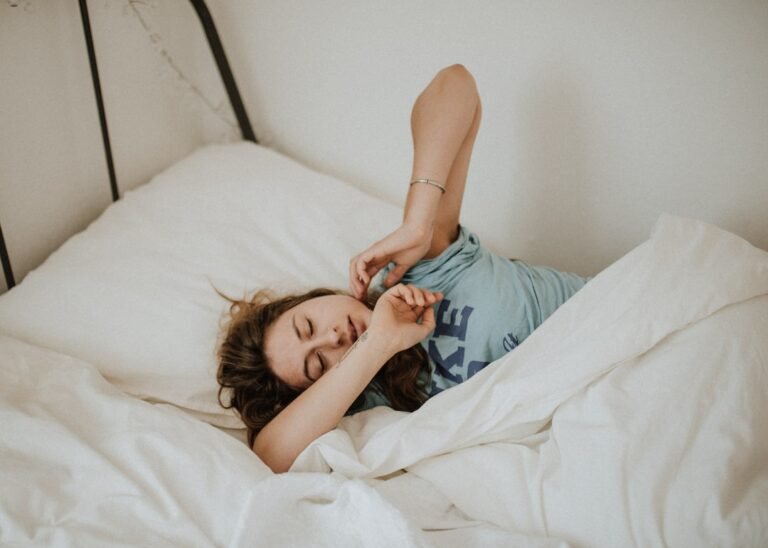Unlocking the Power of Quality Sleep with CBD: A Comprehensive Guide
Quality sleep is essential for overall health and well-being. It is during sleep that our bodies repair and rejuvenate, allowing us to wake up feeling refreshed and ready to take on the day. Unfortunately, many people struggle with sleep disorders that prevent them from getting the rest they need. According to the American Sleep Association, approximately 50-70 million adults in the United States have a sleep disorder, with insomnia being the most common.
The prevalence of sleep disorders highlights the need for effective solutions. While there are various medications and therapies available, many people are turning to natural remedies like CBD to improve their sleep quality. CBD, or cannabidiol, is a compound found in the cannabis plant that has been shown to have numerous health benefits, including promoting better sleep. In this article, we will explore the science behind CBD and sleep, different forms of CBD for sleep, dosage recommendations, choosing the right CBD product, combining CBD with other sleep aids, incorporating CBD into your bedtime routine, common sleep disorders and how CBD can help, potential side effects and risks of CBD for sleep, and conclude with the importance of quality sleep and using CBD as a natural remedy.
The Science Behind CBD and Sleep: How It Works
To understand how CBD can improve sleep quality, it is important to first understand the endocannabinoid system (ECS). The ECS is a complex network of receptors and neurotransmitters that helps regulate various bodily functions, including sleep. It consists of two main types of receptors: CB1 receptors, which are primarily found in the brain and central nervous system, and CB2 receptors, which are primarily found in the immune system.
Research has shown that CBD interacts with these receptors in the ECS to promote better sleep. One study published in the Journal of Clinical Pharmacology found that CBD increased total sleep time and reduced the number of awakenings during the night in participants with insomnia. Another study published in the Journal of Psychopharmacology found that CBD improved sleep quality and reduced anxiety in participants with anxiety disorders.
These studies suggest that CBD can help regulate sleep by reducing anxiety and promoting relaxation. CBD has also been shown to have anti-inflammatory and analgesic properties, which can help alleviate pain and discomfort that may interfere with sleep. Additionally, CBD has been found to increase levels of adenosine, a neurotransmitter that promotes sleep and wakefulness.
Different Forms of CBD for Sleep: Oils, Edibles, and More
CBD is available in various forms, each with its own pros and cons when it comes to sleep. The most common form of CBD is oil, which is taken orally by placing a few drops under the tongue. This allows for quick absorption into the bloodstream, making it an effective option for those who need immediate relief from sleep issues. However, the effects of CBD oil may not last as long as other forms.
Edibles, such as gummies or capsules, are another popular option for sleep. These provide a convenient and discreet way to consume CBD, but they may take longer to take effect since they need to be digested before entering the bloodstream. Topicals, such as creams or lotions, can be applied directly to the skin and are often used for localized pain relief. While topicals may not directly affect sleep, they can help alleviate discomfort that may interfere with sleep.
Each form of CBD has its own unique benefits and drawbacks when it comes to sleep. It is important to consider your individual needs and preferences when choosing a form of CBD for sleep.
Dosage Recommendations for CBD and Sleep
Determining the right dosage of CBD for sleep can be challenging since there is no one-size-fits-all approach. The optimal dosage will vary depending on factors such as weight, tolerance, and the severity of sleep issues. It is recommended to start with a low dose and gradually increase until the desired effects are achieved.
A general guideline for CBD dosage is to start with 1-6 mg of CBD per 10 pounds of body weight. For example, a person weighing 150 pounds would start with a dosage of 15-90 mg of CBD. It is important to note that these are just general recommendations and individual needs may vary.
It is also important to consider the potency of the CBD product you are using. CBD products come in various strengths, so it is important to read the label and follow the manufacturer’s instructions for dosage. It is always best to consult with a healthcare professional before starting a new sleep regimen or adjusting your dosage.
Choosing the Right CBD Product for Your Sleep Needs
When choosing a CBD product for sleep, it is important to consider factors such as potency, purity, and ingredients. Look for products that have been third-party tested for potency and purity to ensure that you are getting a high-quality product. Avoid products that contain additives or artificial ingredients, as these may interfere with sleep or cause unwanted side effects.
It is also important to consider the method of extraction used to obtain the CBD. CO2 extraction is considered the gold standard since it preserves the integrity of the plant and produces a pure and potent product. Avoid products that use harsh chemicals or solvents in the extraction process, as these may leave behind harmful residues.
Additionally, consider the type of CBD used in the product. Full-spectrum CBD contains all of the compounds found in the cannabis plant, including THC, while broad-spectrum CBD contains all of the compounds except THC. CBD isolate is pure CBD and does not contain any other compounds. Each type of CBD has its own unique benefits and drawbacks, so it is important to choose one that aligns with your individual needs and preferences.
Combining CBD with Other Sleep Aids: Pros and Cons

Combining CBD with other sleep aids, such as melatonin or prescription medications, can have both benefits and risks. Melatonin is a hormone that helps regulate sleep-wake cycles and is often used as a natural sleep aid. CBD has been shown to enhance the effects of melatonin and improve sleep quality. However, it is important to use caution when combining CBD with melatonin, as it may cause excessive drowsiness or other unwanted side effects.
When it comes to prescription medications, it is important to consult with a healthcare professional before combining CBD with any medications. CBD can interact with certain medications, such as blood thinners or anti-seizure medications, and may cause unwanted side effects or reduce the effectiveness of the medication. It is always best to err on the side of caution and seek professional advice before combining CBD with other sleep aids.
How to Incorporate CBD into Your Bedtime Routine
Incorporating CBD into your bedtime routine can help promote better sleep. One of the most effective ways to use CBD for sleep is to take it about 30 minutes before bed. This allows enough time for the CBD to take effect and promote relaxation.
There are various ways to incorporate CBD into your bedtime routine. You can take CBD oil orally by placing a few drops under your tongue or add it to a beverage like herbal tea. Edibles, such as gummies or capsules, can be taken orally and provide a convenient way to consume CBD. Topicals can be applied directly to the skin before bed to help alleviate pain or discomfort that may interfere with sleep.
Experiment with different methods of consumption to find what works best for you. It may take some trial and error to find the right dosage and form of CBD that promotes better sleep.
Common Sleep Disorders and How CBD Can Help
CBD has been shown to be effective in alleviating symptoms of common sleep disorders such as insomnia and sleep apnea. Insomnia is characterized by difficulty falling asleep or staying asleep, and can have a significant impact on daily functioning. CBD has been shown to reduce anxiety and promote relaxation, which can help improve sleep quality and duration.
Sleep apnea is a sleep disorder characterized by pauses in breathing or shallow breathing during sleep. It can lead to daytime sleepiness, fatigue, and other health issues. CBD has been shown to have anti-inflammatory properties, which can help reduce inflammation in the airways and improve breathing during sleep.
CBD has also been shown to be effective in reducing symptoms of restless leg syndrome (RLS), a condition characterized by an uncontrollable urge to move the legs, especially at night. RLS can cause discomfort and disrupt sleep. CBD’s analgesic properties can help alleviate pain and discomfort associated with RLS, allowing for better sleep.
Potential Side Effects and Risks of CBD for Sleep
While CBD is generally considered safe, it is important to be aware of potential side effects and risks. Common side effects of CBD include drowsiness, dry mouth, changes in appetite, and diarrhea. These side effects are usually mild and temporary, but it is important to monitor how your body responds to CBD and adjust your dosage if needed.
It is also important to consider the potential risks of using CBD with certain medications or medical conditions. CBD can interact with certain medications, such as blood thinners or anti-seizure medications, and may cause unwanted side effects or reduce the effectiveness of the medication. It is always best to consult with a healthcare professional before starting a new sleep regimen or adjusting your dosage.
Unlocking the Power of Quality Sleep with CBD
In conclusion, quality sleep is essential for overall health and well-being. CBD has been shown to have numerous benefits for sleep, including reducing anxiety, promoting relaxation, alleviating pain and discomfort, and improving sleep quality and duration. CBD is available in various forms, each with its own unique benefits and drawbacks. It is important to choose a high-quality CBD product and determine the right dosage for your individual needs. It is also important to use caution when combining CBD with other sleep aids and to consult with a healthcare professional before starting a new sleep regimen. By unlocking the power of quality sleep with CBD, you can improve your overall health and well-being.







